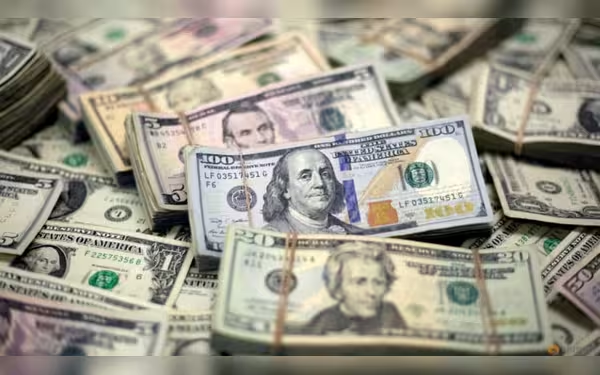Saturday, November 16, 2024 07:41 PM
Dollar Strength Impacts Fed and BOE Decisions
- U.S. dollar nears four-month high amid market uncertainty.
- Fed expected to cut rates, but December decision remains unclear.
- Trump's policies may influence future economic growth and inflation.
 Image Credits: channelnewsasia
Image Credits: channelnewsasiaThe U.S. dollar's strength influences upcoming Fed and BOE decisions amid market uncertainty and Trump's economic policies.
The financial landscape is currently dominated by the performance of the U.S. dollar, which has recently been hovering near a four-month high. This situation arises as the market continues to process the implications of Republican Donald Trump's victory in the U.S. presidential election. Investors are now closely monitoring several central bank decisions, particularly those from the Federal Reserve (Fed) and the Bank of England (BOE), which are expected to have significant impacts on global markets.
As the Fed prepares to announce its decision, it is widely anticipated that interest rates will be cut by 25 basis points. However, the focus will be on any indications that the Fed might consider skipping a rate cut in December. The recent jobs report for October was weaker than expected, raising concerns about the health of the labor market. This data, however, is complicated by the effects of recent hurricanes and labor strikes, making it difficult to gauge the true state of employment.
Trump's return to the White House has sparked discussions about the potential for a slower and more cautious approach to rate cuts by the Fed. While the initial market reaction to Trump's victory was positive, with U.S. equities reaching record highs, there are mixed feelings among analysts. Senior market analyst Matt Simpson noted that while a weaker yen and strong U.S. equities seem to support Trump, a stronger dollar and rising Treasury yields suggest that markets are preparing for a less dovish Fed in the future.
Trump's policies, which include measures to restrict illegal immigration, implement new tariffs, lower taxes, and reduce regulations, could stimulate economic growth and inflation. This, in turn, may limit the Fed's ability to cut rates further. The political landscape is also crucial, as a full Republican sweep could lead to significant legislative changes, potentially causing larger fluctuations in currency values. Currently, markets estimate a 70 percent chance that the Fed will cut rates next month, a slight decrease from earlier predictions.
On the currency front, the dollar index, which compares the dollar against six major currencies, dipped slightly to 105.06 after reaching its highest level since July. The Japanese yen saw a minor increase, while the euro stabilized after experiencing a significant drop. The British pound, however, remains under pressure, trading at 1.2885.
As the Fed's decision looms, the Bank of England is also expected to cut interest rates for the second time since 2020. Investors are particularly interested in whether the BOE will provide guidance on future rate movements following the government's budget, which is anticipated to increase inflation. Meanwhile, the Riksbank is expected to ease rates by 50 basis points, while the Norges Bank is likely to maintain its current stance.
In other markets, the Australian dollar remained stable after hitting a three-month low, and Bitcoin is trading just below its record high, reflecting ongoing interest in cryptocurrencies, which Trump has shown a favorable attitude towards.
The current financial climate is characterized by uncertainty and anticipation as central banks prepare to make crucial decisions. Investors must remain vigilant and adaptable, as the outcomes of these decisions could significantly influence market dynamics. Understanding the interplay between political events and economic policies is essential for navigating this complex landscape.













